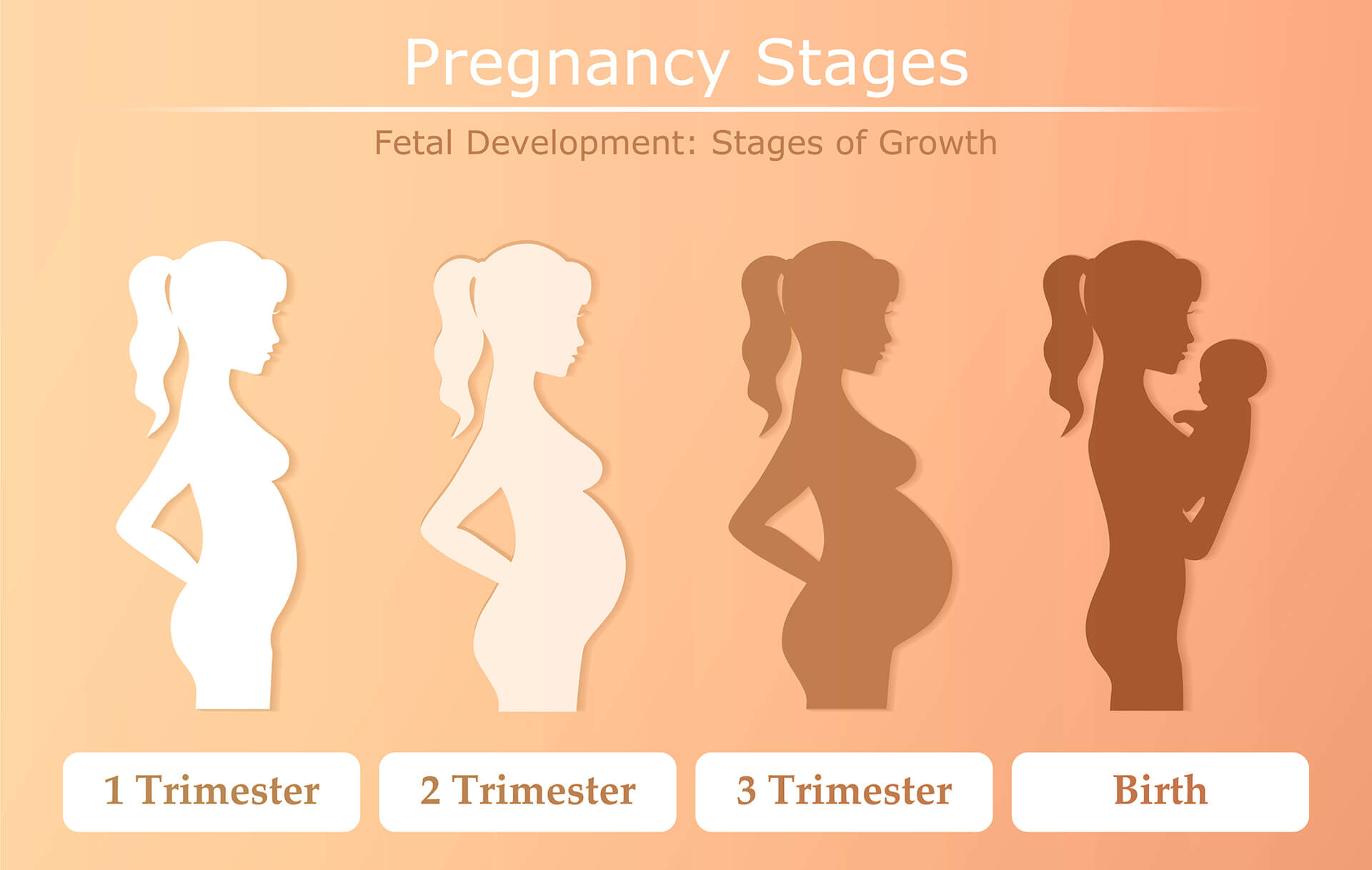
Stages of Pregnancy: A Comprehensive Guide
Pregnancy is a remarkable journey that encompasses a myriad of physical, emotional, and hormonal changes. Understanding the stages of pregnancy can provide expectant mothers with valuable insights into the development of their baby and the transformations their body will undergo. This comprehensive guide will delve into each stage of pregnancy, highlighting key milestones, potential discomforts, and essential prenatal care.
First Trimester (Weeks 1-12)
- Week 1-4: Conception occurs when a sperm fertilizes an egg, forming a zygote. The zygote travels through the fallopian tube and implants in the lining of the uterus.
- Week 5-8: The embryo, now known as a fetus, begins to develop rapidly. The heart, brain, and other vital organs start forming.
- Week 9-12: The fetus grows significantly, and facial features become more defined. The placenta, which provides nourishment and oxygen to the baby, develops fully.
Common Discomforts:
- Nausea and vomiting (morning sickness)
- Fatigue
- Breast tenderness
- Frequent urination
Prenatal Care:
- Regular prenatal checkups to monitor fetal development and maternal health
- Blood tests to screen for genetic disorders
- Ultrasound to visualize the fetus and assess growth
Second Trimester (Weeks 13-28)
- Week 13-16: The fetus’s body lengthens, and its movements become more pronounced. The mother may begin to feel the baby’s kicks.
- Week 17-20: The fetus develops hair and nails. The mother’s uterus expands, and her belly becomes more visible.
- Week 21-24: The fetus’s hearing develops, and it can respond to sounds. The mother may experience Braxton Hicks contractions, which are practice contractions that prepare the uterus for labor.
- Week 25-28: The fetus gains weight rapidly and its organs continue to mature. The mother’s body prepares for breastfeeding by producing colostrum.
Common Discomforts:
- Back pain
- Leg cramps
- Heartburn
- Swelling in the hands and feet
Prenatal Care:
- Continued prenatal checkups
- Glucose tolerance test to screen for gestational diabetes
- Ultrasound to assess fetal growth and anatomy
Third Trimester (Weeks 29-40)
- Week 29-32: The fetus’s lungs and other organs continue to develop. The mother’s body produces relaxin, a hormone that loosens the ligaments and prepares the pelvis for childbirth.
- Week 33-36: The fetus’s brain undergoes rapid growth and development. The mother’s uterus expands significantly, and she may experience shortness of breath.
- Week 37-40: The fetus is fully developed and ready for birth. The mother’s body prepares for labor by producing prostaglandins, which help ripen the cervix.
Common Discomforts:
- Increased urination
- Hemorrhoids
- Insomnia
- Anxiety about labor and delivery
Prenatal Care:
- Weekly prenatal checkups to monitor fetal well-being and maternal health
- Non-stress test or biophysical profile to assess fetal health
- Pelvic exam to assess cervical dilation and effacement
Labor and Delivery
Labor begins when the uterus contracts regularly, causing the cervix to dilate. The first stage of labor involves the dilation of the cervix to 10 centimeters. The second stage is the birth of the baby, followed by the third stage, which involves the delivery of the placenta.
Postpartum Period
After childbirth, the mother’s body undergoes significant changes as it recovers from pregnancy and labor. The uterus contracts to return to its original size, and the hormonal levels return to normal. The mother may experience vaginal bleeding, breast tenderness, and fatigue.
Prenatal Care:
- Postpartum checkups to monitor the mother’s recovery and provide support
- Breastfeeding counseling and support
- Education on newborn care and postpartum self-care
Conclusion
Pregnancy is a transformative journey that encompasses a wide range of physical, emotional, and hormonal changes. Understanding the stages of pregnancy can empower expectant mothers with knowledge and prepare them for the challenges and joys that lie ahead. By adhering to prenatal care guidelines and seeking support from healthcare professionals, mothers can optimize their health and ensure the well-being of their developing baby.